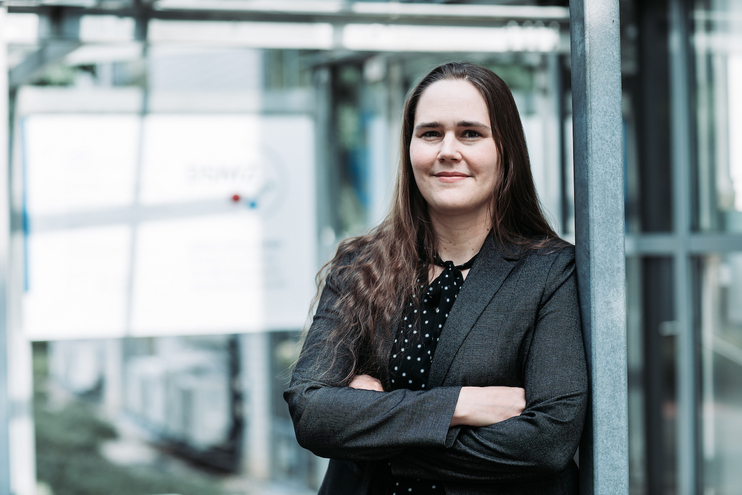On August 1st, Meina Neumann-Schaal was introduced as new head of the Department of Services at the Leibniz Institute DSMZ-German Collection of Microorganisms and Cell Cultures GmbH in Braunschweig, Lower Saxony.
Doctor Neumann-Schaal, previously head of the Independent Junior Research Group Bacterial Metabolomics at the DSMZ, takes over the coordination of the extensive portfolio of scientific services that DSMZ offers to researchers worldwide. The DSMZ provides extensive microbiological, molecular biological and biochemical analyses. An overview of the available services can be found on the DSMZ website (https://www.dsmz.de/services). "We offer the scientific community a comprehensive portfolio of state-of-the-art services. We keep up with the times and adapt our analytical methods to the individual needs of our customers and the latest developments in this field." summarises the biochemist.
Research remains an integral part of Dr. Neumann-Schaal's daily work. With her working group Metabolomics she continues to investigate the metabolism of pathogenic bacteria such as Clostridioides difficile and Pseudomonas aeruginosa. "With our research we do not only achieve new insights in the field of bacterial metabolism, but also develop new methodological approaches for our customers. So to speak 'Science for Service & Service for Science'." states the scientist.
The 40-year-old is married and mother of two children. After studying biotechnology at the TU Braunschweig, Meina Neumann-Schaal received her doctorate in biochemistry at the University of Potsdam. After several years of research work there, she returned to the TU Braunschweig in 2013 and deepened her research focus in the field of microbial metabolomics. In August 2017, the scientist took over as head of the Independent Junior Research Group Bacterial Metabolomics at the Leibniz Institute DSMZ. She is a founding member of the German Society for Metabolomics Research and was elected Vice President of the Society in May 2019.
Press contact:
PhDr. Sven-David Müller, Head of Public Relations, Leibniz Institute DSMZ-German Collection of Microorganisms and Cell Cultures GmbH
Phone: ++49 (0)531/2616-300
Mail: press(at)dsmz.de
About the Leibniz Institute DSMZ
The Leibniz Institute DSMZ-German Collection of Microorganisms and Cell Cultures is the world's most diverse collection of biological resources (bacteria, archaea, protists, yeasts, fungi, bacteriophages, plant viruses, genomic bacterial DNA as well as human and animal cell lines). Microorganisms and cell cultures are collected, investigated and archived at the DSMZ. As an institution of the Leibniz Association, the DSMZ with its extensive scientific services and biological resources has been a global partner for research, science and industry since 1969. The DSMZ is the first registered collection in Europe (Regulation (EU) No. 511/2014) and certified according to the quality standard ISO 9001:2015. As a patent depository, it offers the only possibility in Germany to deposit biological material in accordance with the requirements of the Budapest Treaty. In addition to scientific services, research is the second pillar of the DSMZ. The institute, located on the Science Campus Braunschweig-Süd, accommodates more than 73,000 cultures and biomaterials and has 198 employees. www.dsmz.de
The Leibniz Association
The Leibniz Association connects 96 independent research institutions that range in focus from the natural, engineering and environmental sciences via economics, spatial and social sciences to the humanities. Leibniz Institutes address issues of social, economic and ecological relevance. They conduct knowledge-driven and applied basic research, maintain scientific infrastructure and provide research-based services. The Leibniz Association identifies focus areas for knowledge transfer to policy-makers, academia, business and the public. Leibniz institutions collaborate intensively with universities – in the form of “Leibniz ScienceCampi” (thematic partnerships between university and non-university research institutes), for example – as well as with industry and other partners at home and abroad. They are subject to an independent evaluation procedure that is unparalleled in its transparency. Due to the importance of the institutions for the country as a whole, they are funded jointly by the Federation and the Länder, employing some 19,100 individuals, including 9,900 researchers. The entire budget of all the institutes is approximately 1,9 billion Euros. www.leibniz-gemeinschaft.de


